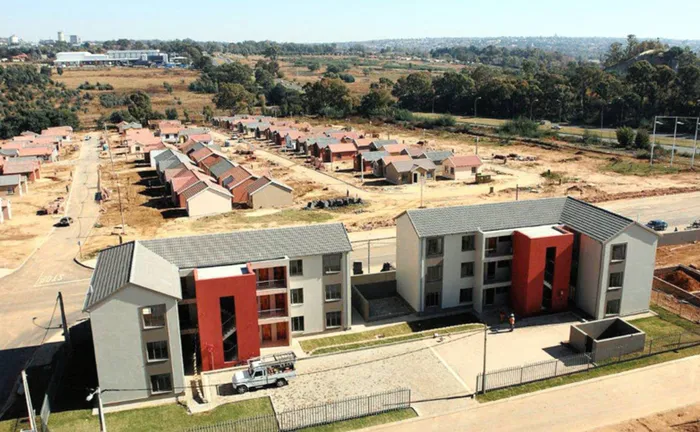The lingering effects of the 2008 financial crisis on South Africa's residential property market

Indicators are particularly favourable for an immediate rate cut to help further boost property sector.
Image: Supplied
SA's residential property 2008 financial crisis recovery
South Africa's residential property market has yet to fully recover, nearly two decades after the 2008 financial crisis.
After a slow recovery that stalled around 2016, sales dipped further during Covid, with only a brief post-pandemic rally showing early signs of fading.
“International markets such as the UK, US and Australia have rebounded more strongly post-2008, while South Africa’s recovery has been more gradual. The data tells a story of resilience amid persistent headwinds from affordability pressures to economic uncertainty,” says Hayley Ivins-Downes, managing executive real estate and director at Prop Data Lightstone.
SA vs other markets
Compared with selected global markets (the UK, US and Australia), South Africa's recovery has been more sluggish, reflecting persistent economic, political and affordability challenges.
This analysis looks at transaction volumes, the rising age of buyers, luxury market performance, provincial disparities, and how South Africa stacks up against international markets.
The insights company says it excluded subsidised properties from the South Africa analysis, as their irregular introduction skews cyclical trends. It says its focus was on single-property full-share transfers, compared with transactions involving only natural buyers.
“We define ownership by 'natural persons' where the property is registered in the name of one or more individuals, as opposed to being registered in the name of a company or trust.”
Meanwhile, ahead of the crucial interest rate decision by the Reserve Bank this week, Samuel Seeff, chairman of the Seeff Property Group, has called on the bank to provide a meaningful rate cut of at least 50bps.
SA needs another rate cut
He says the local economy and property market need a rate cut, and there is no reason to delay it any further.
“We have recently seen positive developments on the economic front, such as the Grey List exit, S&P credit rating upgrade to BB, the first in 20 years, and positive job growth data for the last quarter.
"While the 1.2% expected growth outlook remains weak, it is nonetheless an improvement over last year, but can only improve with further economic stimulation, including a rate cut,” says Seeff.
The real estate agency says that while they appreciate the move to lower the inflation target over the next two years as a strategy to bring down the interest rate, the rate is still about 50bps too high. Seeff says it for this reason, it remains a hindrance to the property market and economic spending.
Indicators are particularly favourable for an immediate rate cut, he says further. Inflation is at a historic low of around 3.2% for this year. It is notably lower compared to last year, and the lowest since 1994 if one excludes the Covid-anomaly, and the 2004/5 boom period when economic growth was at 5%.
The current inflation rate also sits comfortably within the Bank’s proposed new lower target of 2-4%, thus providing ample motivation for a robust cut this week. This is especially important ahead of the annual busy retail season.
The ZAR to the USD has been stable at below R18.00 for a significant portion of this year, recently dipping to R17.06.
Seeff says despite the strong fundamentals for most of this year, there have only been three rate cuts, the last being in July. It says the Reserve Bank has missed the last two opportunities, given that inflation has been largely contained despite marginal variations.
Notably, the US Federal Reserve has made two cuts since mid-year (September and October) totalling 50bps.
Recent rate cuts
The estate agency says while there has been more movement in the property market on the back of the three rate cuts in the first half of the year, the uptick is nowhere near where it should be. This is largely because the interest rate has remained higher than necessary, it says.
The average house price growth is also still only at around 5%, save for the more robust Western Cape property market. A further rate cut would immediately lower the cost of borrowing and inject more money back into consumer wallets. It will improve property affordability and stimulate activity by lowering the cost of home loans and the general cost of credit.
The Monetary Policy Committee's September decision to keep the repo rate unchanged is said to have prevented any meaningful further improvement in the number of home loan applications received in October.
According to the November 2025 BetterBond Property Brief, although the latest BetterBond index of home loan applications managed to increase by 3.2% in October compared to the average for the third quarter, the year-on-year increase (October 2024) was muted at only 0.4%.
“Little doubt exists that many prospective homebuyers are sitting on the sidelines, hoping that interest rates will decline further,” reads the brief.
“We, therefore, believe there is every reason to expect a rate cut of at least 25bps, although a 50bps reduction would provide a much stronger injection into the economy,” urges Seeff.
Independent Media Property
Related Topics: